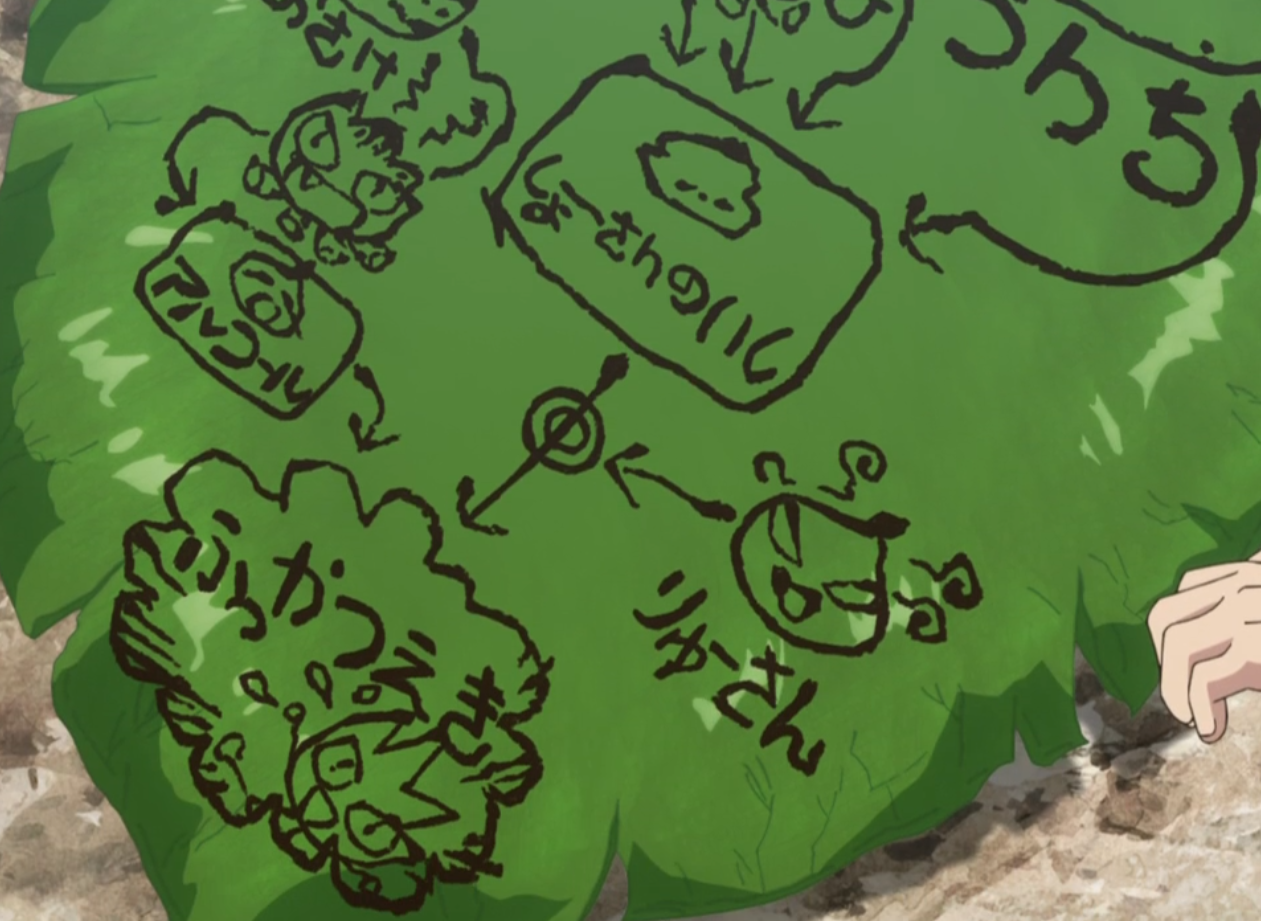結論:『スイカは、何とかした』のです。それでいいんです。(Dr.Stoneシーズン4の23話です)
Dr. Stone 23話のモールス信号は何を示していますか? とChatGPTに聞いてみたところ、
When I asked ChatGPT, "What does the Morse code in episode 23 of Dr. Stone mean?",
"Live(生きろ)"
"Live."
という回答がありました。
That was the response I received.
で、聞き直してみたのですが、"LIVE"ではないことは確信できました。
Then I listened again, and I became certain that it was not "LIVE."
私には、3文字の繰り返しに聞こえました。
To me, it sounded like a repetition of three letters.
"W...H....Qかな?" "いやいや、CQは、ティーンエイジャの時にこれまで1万回も打ち続けてきた。'Q'ではない"
"Could it be W...H...Q?" "No, no, I’ve tapped CQ over ten thousand times since my teenage years. It’s not 'Q'."
----
で、再度、ChatGPTに「Dr.Stoneシーズン4の23話です」として尋ね直してみたところ、
So I asked ChatGPT again, this time specifying, "It’s season 4, episode 23."
"WHY(なぜ?)"
The answer I got this time was, "WHY?"
という回答が返ってきました。
That was the response.
なぜ、ここにホワイマンのメッセージが出てくるのか不思議に思ったのですが ーー
I found it strange why Whyman’s message would appear here—
『作中の主人公スイカの視点で「なぜこんなことが起きたのか」、「なぜ自分はひとりぼっちで頑張ってきたのか」、あるいは人類石化・世界の状況そのものへの問いかけ、という意味を含んでいる』という考察がされているようです。
It seems there is an interpretation that, from the perspective of the protagonist Suika, it represents questions like "Why did this happen?", "Why did I have to struggle alone?", or even a broader inquiry into the petrification of humanity and the state of the world itself.

しかし、硝石やアルコールまでは何とかなると思う(硝石は16世紀の火縄銃の火薬の原料としてよく登場するし、アルコールは自作のビールやドブロクで私も何度も作ったことがある)のですが ーー
However, I think that producing nitric acid and alcohol would somehow be manageable (nitric acid often appears as a raw material for gunpowder in 16th-century matchlocks, and I myself have brewed beer and doburoku many times).
さすがに『硫酸の作成』は難しいのではないかと思いました(私でも作成アプローチを知らない)。
But when it comes to “sulfuric acid,” I felt it would be far more difficult (even though I have no idea of a practical approach to make it).
『ファンの考察としては、「スイカは火山性の硫黄の結晶や温泉周辺の硫黄類を採取し、そこから必要な酸類を得たのではないか」「硝石はグアノ由来で作った」などの推測が多く見られますが、これらは作中の断片的描写から読者が補完した解釈であり、公式に“その工程が完全に明言”されているわけではありません』だそうです。
As some fans have speculated, “Suika might have gathered volcanic sulfur crystals or sulfurous substances from hot spring areas to obtain the necessary acids,” or “she might have produced saltpeter from guano.” Yet these are interpretations supplemented by readers from fragmentary depictions in the story, and not official explanations of the process.
作品やキャラクターへの"愛"の感じられる考察です。
It is a kind of interpretation that conveys a real sense of love for the work and its characters.
結論:『スイカは、何とかした』のです。それでいいんです。
In conclusion: “Suika somehow made it happen.” And that is good enough.